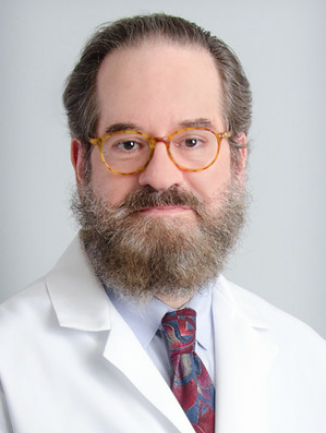E-Newsletter - February 2018
The good fight
 By Ellis Levine, MD
By Ellis Levine, MD
Principal Investigator
Roswell Park Comprehensive Cancer Center
I have done something that is unpopular, and perhaps unwise, in academic circles – I have stayed at the same academic center for many, many years. I have lived through more history than I care to admit. During my tenure, my academic center has changed its name three times (from Roswell Park Memorial Institute to Roswell Park Cancer Institute and now Roswell Park Comprehensive Cancer Center), the CALGB has merged as part of the Alliance, and I have served under the wisdom of four Group chairpersons (Emil “Tom" Frei III, MD; O. Ross McIntyre, MD; Richard L. Schilsky, MD; Monica M. Bertagnolli, MD).
Cooperative group protocols have often been the unwanted stepchild of an academic center. They do not have the cachet of investigator-initiated protocols (nor should they) and tend to be money losing acts of nobility in regard to payment-in-kind for time and effort. On top of that foundation, the effort to maintain interest in cooperative group protocols has become more strained and less successful over the years. Many reasons can be cited. Among the more important in my mind are: (1) the merger of the Groups have increased the number of main members by three-four fold, thereby decreasing opportunities for young investigators “to break out;” (2) the number of protocols and the generalizability for enrollment have been considerably reduced, further decreasing opportunities for young investigators and undermining interest of more senior investigators; and (3) pharmaceutical protocols have become dominant at my Center; the money is good, sometimes great, and these trials can offer at times more exciting therapeutic options; and (4), the gestation from suggesting an idea for a protocol to its activation can seem interminable.
Alas, I complain too much. The greatest joy that I derive from the invitation to write about my network is to acknowledge those who are never credited in print for their labors on behalf of the local cooperative group effort. Prominent on that list is my beloved secretary of almost 30 years Karen Kennedy (who had the temerity to retire in 2017) and her successor, the very able grants assistant Sara Piper, who have assisted me in putting together our cooperative group grants for almost three decades; Laurie Musial, who serves as the head of our Clinical Research Office; Laurie Ford and Linda Schmieder (now retired), who have served as Senior Administrators for Study Implementation and managed both the research nurses and data managers; Julie Guido, who has served as the Senior Administrator for Regulatory Affairs; and the tens and tens of research nurses and data managers that have contributed to the local cooperative group effort over the years and are simply too numerous to name. A simple thank you is a woefully inadequate measure of my gratitude for their passion, their caring and humanity for our research subjects, the quality of their data collection and the timeliness of its submission, and the devotion they have shown for so many years to allow our network to be among the best citizens of the Alliance.
In sum, I feel that the interest in cooperative group protocols is perhaps at its lowest ebb during my long career. However, as so much of our care in the clinic is based on the findings from this fellowship of activity and devotion, its importance cannot be allowed to be minimized or undervalued. The sustenance of the cooperative group effort must derive from the passion of the cooperative group chairs, and, since “all politics are local,” from the main member principal investigators. I, for one, do not intend to give up the good fight.
For other articles in this issue of the Alliance E-News newsletter, see below.
-
Spotlight on Trials:
Recent Alliance Protocol Activations
Alliance Experimental Therapeutics and Rare Tumor Committee
Alliance Abstracts at Annual Meetings - Alliance in the News
- Message From the Group Statistician
-
Guest Columnists
Ellis Levine, MD - The Good Fight
John P. Leonard, MD - The Argument for Simplicity in Clinical Trials During an Era of Precision Medicine
Patty Spears and Coleen Crespo, MIS - Advocating to Measure What Matters to Patients -
Alliance Spring Group Meeting Registration Now Open
Investigators Panel - Clinical Trial Obstacles and Overcoming Them -
Announcements
New Members Join Alliance Patient Advocate Committee
Alliance/ACS CRP to Present Clinical Trials Training Course at SSO Annual Meeting
Call for Abstracts: Alliance CRP/Oncology Nursing Committees
Did You Know? Alliance Website Tips


